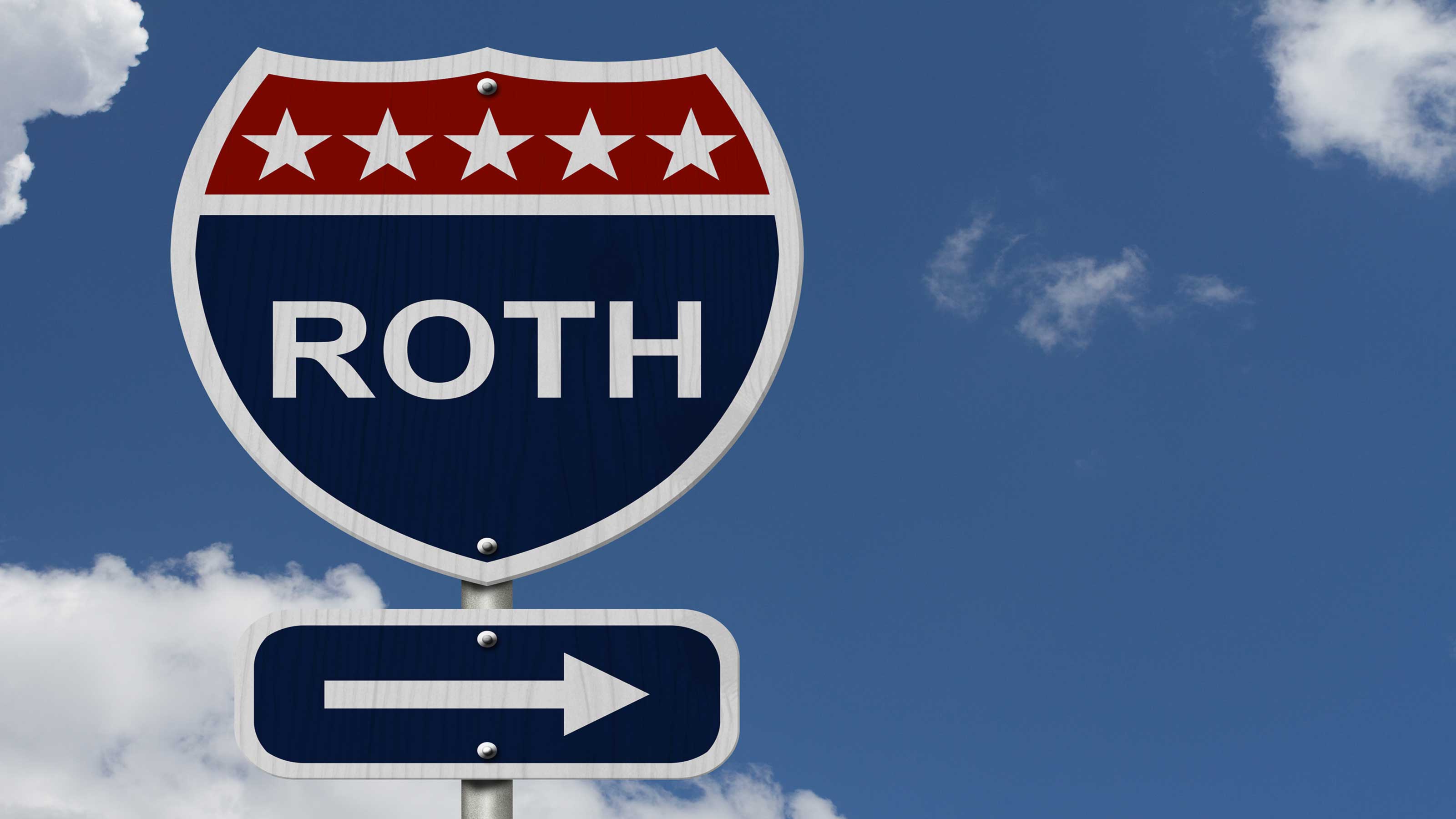Why You Need a 401(k) Right Away
Start investing now to make the most of the decades you have until your dream retirement.

Profit and prosper with the best of Kiplinger's advice on investing, taxes, retirement, personal finance and much more. Delivered daily. Enter your email in the box and click Sign Me Up.
You are now subscribed
Your newsletter sign-up was successful
Want to add more newsletters?

Delivered daily
Kiplinger Today
Profit and prosper with the best of Kiplinger's advice on investing, taxes, retirement, personal finance and much more delivered daily. Smart money moves start here.

Sent five days a week
Kiplinger A Step Ahead
Get practical help to make better financial decisions in your everyday life, from spending to savings on top deals.

Delivered daily
Kiplinger Closing Bell
Get today's biggest financial and investing headlines delivered to your inbox every day the U.S. stock market is open.

Sent twice a week
Kiplinger Adviser Intel
Financial pros across the country share best practices and fresh tactics to preserve and grow your wealth.

Delivered weekly
Kiplinger Tax Tips
Trim your federal and state tax bills with practical tax-planning and tax-cutting strategies.

Sent twice a week
Kiplinger Retirement Tips
Your twice-a-week guide to planning and enjoying a financially secure and richly rewarding retirement

Sent bimonthly.
Kiplinger Adviser Angle
Insights for advisers, wealth managers and other financial professionals.

Sent twice a week
Kiplinger Investing Weekly
Your twice-a-week roundup of promising stocks, funds, companies and industries you should consider, ones you should avoid, and why.

Sent weekly for six weeks
Kiplinger Invest for Retirement
Your step-by-step six-part series on how to invest for retirement, from devising a successful strategy to exactly which investments to choose.
Huddle up, young Americans: Now is the time to start saving for a winning retirement. Now.
If you're in your twenties, you've got a rare, genuine opportunity to get ahead, and you'll kick yourself if you pass it up. According to the Employee Benefit Research Institute’s 2010 Retirement Confidence Survey, only half of workers ages 25 to 34 (the youngest group surveyed) are currently saving for retirement. And just 33% contribute to an employer-sponsored retirement plan. I'm guessing the numbers are even worse for folks in their early twenties, many of whom may feel like their first paychecks aren't big enough to justify saving some for retirement.
So the simple task of signing up for your company's 401(k) plan will put you ahead of two-thirds or more of your peers. Just how far ahead? Let’s say you're 23 and make $31,200 a year, and you hope to retire at age 65. If you start contributing 7% of your pay ($182 a month) to your employer’s 401(k) plan and never get a raise in 42 years, your account will wind up with about $1.1 million when you retire -- based on the reasonable assumptions that your company will contribute 3% each year on your behalf and your portfolio will earn 8% annualized. But if you wait until you’re 30 to start contributing, you’ll net only $596,409 by the time you’re 65. To make up the difference, you’d have to either ratchet up your contribution all along the way to 15% or keep working another seven years. Ugh.
From just $107.88 $24.99 for Kiplinger Personal Finance
Become a smarter, better informed investor. Subscribe from just $107.88 $24.99, plus get up to 4 Special Issues

Sign up for Kiplinger’s Free Newsletters
Profit and prosper with the best of expert advice on investing, taxes, retirement, personal finance and more - straight to your e-mail.
Profit and prosper with the best of expert advice - straight to your e-mail.
Don’t pass up your head start, dear readers. Get ahead while you’re still in the first quarter of your career, and commit to saving for retirement now. You'll look back when you’re 30 and feel incredible about your decision.
Opting in to my first employer’s plan when I was 23 years old was one of my smartest money moves to date. It took me less than 15 minutes to sign up, and, over the next three years, my retirement savings grew from $0 to more than $6,000 with very little pain or extra effort from me.
Why a 401(k)?
Many of us have never been offered a pension, and who knows how much we can count on receiving Social Security benefits by the time we retire? So our best bet for retirement is a 401(k) plan.
Getting your 401(k) started is easy -- so easy, in fact, that you might have already done it without realizing. Last year, according to a survey from Hewitt Associates, 59% of responding firms had automatically enrolled their employees in their 401(k) plans. Another 12% of companies plan to start doing the same in 2010.
Once enrolled, your employer will transfer part of your paycheck -- either a set dollar amount or a percentage of your salary, whatever you choose -- to a tax-deferred investment account. Because the funds are automatically moved to the 401(k) before they reach your pocket, you’ll never even miss them.
The unique benefits of a 401(k)
One key benefit of a 401(k) is the tax advantage. Your contributions aren't subject to federal or state taxes, so you can rack up substantial savings. Maxing out the full $16,500 contribution limit for 2010, for example, would save you $3,300 in taxes for the year, assuming a 15% federal tax bracket and a 5% state income tax. Plus, your account’s investment earnings will grow tax-free until you withdraw. (Or ask your employer about a Roth 401(k): You contribute after-tax dollars, but your payouts during retirement will be tax-free. Only 29% of companies offered this type of account in 2009, but another 25% said they’re likely to offer it in 2010. To learn more, watch our video The Roth Idea Comes to the 401(k).)
Another big benefit of a 401(k) plan: free money. Seriously. Sometimes, you’ll find a very generous company, such as Kiplinger Washington Editors, that will contribute a percentage of your income each year to your 401(k) account regardless of your own contributions. But usually an employer will (also very generously) offer to match a certain amount of your contribution. At my first job, for example, I contributed 6% of my income to capture the employer’s full 3% match -- essentially topping off every $1 I invested with an extra 50 cents, giving me an immediate 50% return.
How much should you contribute?
Most companies permit 2% to 15% of pay each year, and the maximum contribution limit for 2010 is $16,500. Ideally, you’ll want to earmark 10% to 15% of your income to retirement savings. But how much you ought to save really depends on what kind of lifestyle you’ll want in retirement. To figure out the dollar amount you’ll need to save, use our Retirement Savings Calculator.
In what should you invest?
Your company will let you choose your own 401(k) investments from a list of mutual funds -- which may include stock, bond or money-market funds -- or maybe the company’s own stock.
To keep it simple, try a single target-date or life-cycle fund. Just select the one named after the year you plan to retire (or the year closest to it). The fund's asset allocation (and therefore your portfolio's asset allocation), or how much is invested in stocks or bonds, is based on the number of years until retirement. Right now, for example, because you’re so far away from retirement, the fund will assume you have a very high risk tolerance and put you mostly, if not all, in stocks. As you get closer to retirement, the fund is designed to glide into more-conservative investments. To find out more about this kind of fund, read Target-Date Funds Reset Their Sights.
What else?
Stay tuned for future columns that will dig deeper into retirement planning and 401(k) investing. In the meantime, if you have any questions or suggestions, or anything else you’d like to share, as always, send them my way via the comment box below.
Profit and prosper with the best of Kiplinger's advice on investing, taxes, retirement, personal finance and much more. Delivered daily. Enter your email in the box and click Sign Me Up.

Rapacon joined Kiplinger in October 2007 as a reporter with Kiplinger's Personal Finance magazine and became an online editor for Kiplinger.com in June 2010. She previously served as editor of the "Starting Out" column, focusing on personal finance advice for people in their twenties and thirties.
Before joining Kiplinger, Rapacon worked as a senior research associate at b2b publishing house Judy Diamond Associates. She holds a B.A. degree in English from the George Washington University.
-
 Quiz: Do You Know How to Avoid the "Medigap Trap?"
Quiz: Do You Know How to Avoid the "Medigap Trap?"Quiz Test your basic knowledge of the "Medigap Trap" in our quick quiz.
-
 5 Top Tax-Efficient Mutual Funds for Smarter Investing
5 Top Tax-Efficient Mutual Funds for Smarter InvestingMutual funds are many things, but "tax-friendly" usually isn't one of them. These are the exceptions.
-
 AI Sparks Existential Crisis for Software Stocks
AI Sparks Existential Crisis for Software StocksThe Kiplinger Letter Fears that SaaS subscription software could be rendered obsolete by artificial intelligence make investors jittery.
-
 Why You Need a Roth IRA
Why You Need a Roth IRARoth IRAs With this indispensable savings tool, your money grows tax-free, you can invest in almost anything and you get several cool perks.
-
 6 Savings Tips for Millennials Who Want to Retire Rich
6 Savings Tips for Millennials Who Want to Retire Richretirement Take advantage of the decades you have before retirement to establish good savings habits and benefit from the magic of compounding.
-
 The Best Money Advice My Dad Ever Gave Me
The Best Money Advice My Dad Ever Gave Meretirement Papa Rapacon has successfully retired by taking calculated risks and educating himself about finances.
-
 Free Money for Retirement
Free Money for Retirementretirement If your company matches contributions, you’ve got a head start.
-
 10 Financial Commandments for Your 30s
10 Financial Commandments for Your 30spersonal finance After establishing a solid financial foundation in your 20s, use the next decade of your life to keep building and protecting your wealth.
-
 Start Saving Now
Start Saving Nowsavings Get in the habit early, even if it’s only a small amount with each paycheck.
-
 10 Financial Commandments for Your 20s
10 Financial Commandments for Your 20spersonal finance Tend to these tasks now to achieve your financial independence later.
-
 What to Do in Case of Financial Emergency
What to Do in Case of Financial EmergencyBudgeting If you have yet to build up an emergency fund, consider these options to help cover any big, unexpected costs.